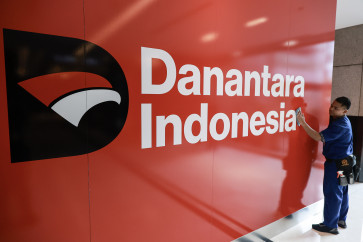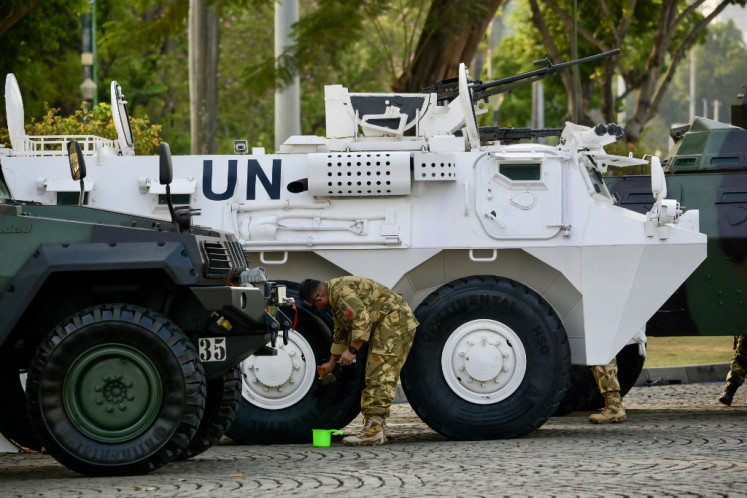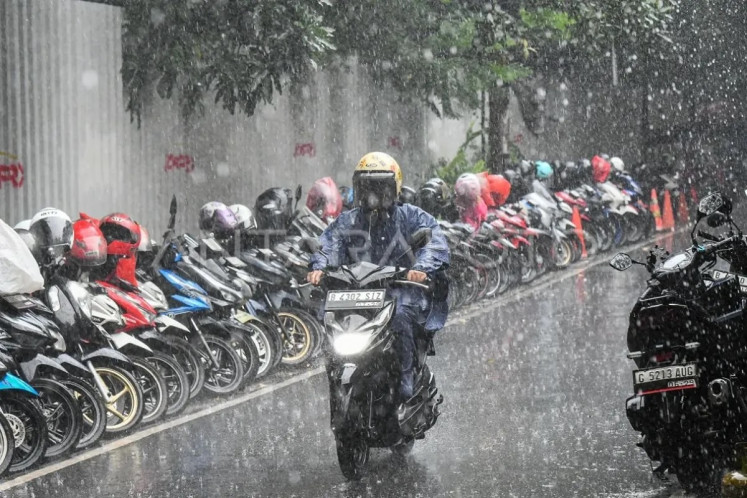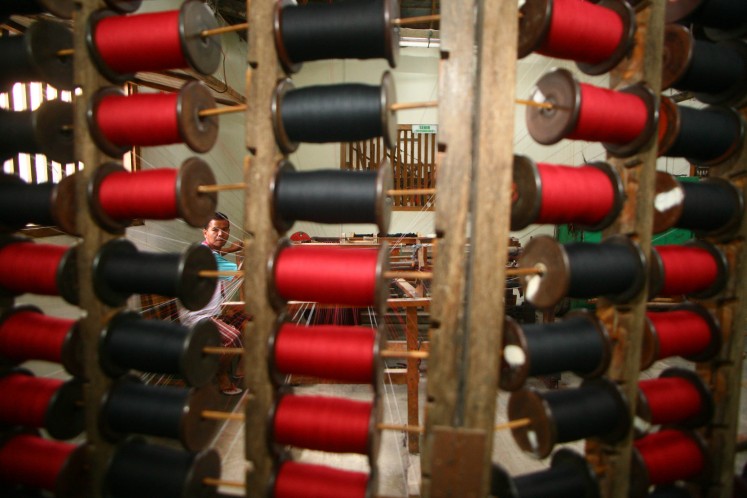Popular Reads
Top Results
Can't find what you're looking for?
View all search resultsPopular Reads
Top Results
Can't find what you're looking for?
View all search resultsNew PLN chief promises ample supply, no blackouts
Nur Pamudji, the newly appointed president director of state-owned power company PT PLN, promised Tuesday to provide sufficient electricity throughout Indonesia to avoid regular blackouts due to power shortages
Change text size
Gift Premium Articles
to Anyone
N
ur Pamudji, the newly appointed president director of state-owned power company PT PLN, promised Tuesday to provide sufficient electricity throughout Indonesia to avoid regular blackouts due to power shortages.
Nur revealed the company’s plan to reporters after his inauguration by his predecessor and current State-Owned Enterprises Minister Dahlan Iksan at the PLN Karet main station in Central Jakarta.
He said that as the company would stick to a plan to provide sufficient electricity across the archipelago, PLN would complete the first 10,000 megawatt (MW) stage of the coal-fired power plant project launched in 2006.
“We hope the power plant’s completion will enable the supply of sufficient electricity throughout the country and at the same time increase the national electrification ratio,” he said after the inauguration ceremony.
Data from the Energy and Mineral Resources Ministry in March shows that the national electrification ratio currently stands at 67.63 percent. This year, the ministry has targeted to achieve 72 percent and 73.65 percent of electrification ratio next year.
“Several regions such as Nusa Tenggara and Papua still have an electrification ratio below 60 percent. We hope that by 2014, all regions will have an electrification ratio that matches the national standard,” Nur said.
To ensure that the mega project runs smoothly, PLN has appointed Nasri Sebayang as construction director, a newly created position at the company to expedite project coordination, which involves many parties.
Nur said further that PLN would also focus on four prime energy resources — coal, gas, geothermal
and hydropower — to generate electricity.
“These four resources will also be one of our main concerns. If they are not sufficient to provide power to the plants, then we will consider oil-based fuels,” he said.
For gas supply, PLN will prioritize domestic supply. Should supply be insufficient, the company will consider gas imports.
PLN spends US$15 per million British thermal unit (mmbtu) to produce power using oil-based fuels but it only costs $12 per mmbtu to produce at gas-fired power plants.
At the same time, Nur said PLN would like to strengthen its 123 call centers in small cities to facilitate easier communication between customers and the company.
The call centers will allow customers to lodge complaints as well as request new installations, power changes and temporary connections without needing to visit a PLN office.
“Call centers have been well established in big cities,” Nur said.
Indonesian Employers Association (Apindo) chairman Sofjan Wanandi said on Monday that under the new leadership, PLN had to prioritize the completion of the 10,000 MW project.
The project is aimed at overcoming a power deficit in Southeast Asia’s largest economy, which resulted from the absence of new power plants following the financial crisis of 1997.
The second 10,000 MW phase project was announced in 2010 using gas, geothermal and hydropower in addition to coal. (fem)










